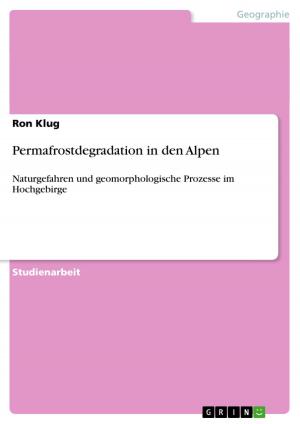Post Soviet Union Period. Exogenous Growth Theory in RUSSIA 1990-2013
Business & Finance, Economics, Economic Development| Author: | Nosirjon Juraev | ISBN: | 9783656602057 |
| Publisher: | GRIN Verlag | Publication: | February 24, 2014 |
| Imprint: | GRIN Verlag | Language: | English |
| Author: | Nosirjon Juraev |
| ISBN: | 9783656602057 |
| Publisher: | GRIN Verlag |
| Publication: | February 24, 2014 |
| Imprint: | GRIN Verlag |
| Language: | English |
Research Paper (postgraduate) from the year 2013 in the subject Economics - Economic Cycle and Growth, grade: 80, University of Westminster, course: BSc in Economics with Finance, language: English, abstract: The initial post-soviet union period has brought Russia a longest path towards expected economic growth, much of which are explained by external factors. The paper applies the neoclassical economic growth theory to the Russia's economy during 1990-2013, explaining the importance of foreign oil price changes, inflow of migrants and its geostrategic location towards global trading - including arm sales to notorious North Korea and Iran - to its annual output growth. I also explained the relative correlations between domestic, internal variables, such as changes in legislation/tax reformations, savings and the growth rates achieved periodically for comparative reasons. Future forecasts approved that the growth has been stabilized in a near-term and will become increasingly more depended on the number of Central Asian and other area migrant workers as long as the negative spread between birth and death rates hold in the long-term. And investment in IT industry and attracting foreign hi-tech investments are highly recommended to increase the factor productivity and lessen the oil dependency in the long term. A regression results on the Cobb-Douglas production function also proved our findings by putting more prominence on labor and technology, as the abundance of natural resources, capital, barely reaches increasing returns to scale. I also found that the regression on constant GDP to the oil production and oil prices asserted that more than two third of variations in output could be the reflection of the variations in oil prices.
Research Paper (postgraduate) from the year 2013 in the subject Economics - Economic Cycle and Growth, grade: 80, University of Westminster, course: BSc in Economics with Finance, language: English, abstract: The initial post-soviet union period has brought Russia a longest path towards expected economic growth, much of which are explained by external factors. The paper applies the neoclassical economic growth theory to the Russia's economy during 1990-2013, explaining the importance of foreign oil price changes, inflow of migrants and its geostrategic location towards global trading - including arm sales to notorious North Korea and Iran - to its annual output growth. I also explained the relative correlations between domestic, internal variables, such as changes in legislation/tax reformations, savings and the growth rates achieved periodically for comparative reasons. Future forecasts approved that the growth has been stabilized in a near-term and will become increasingly more depended on the number of Central Asian and other area migrant workers as long as the negative spread between birth and death rates hold in the long-term. And investment in IT industry and attracting foreign hi-tech investments are highly recommended to increase the factor productivity and lessen the oil dependency in the long term. A regression results on the Cobb-Douglas production function also proved our findings by putting more prominence on labor and technology, as the abundance of natural resources, capital, barely reaches increasing returns to scale. I also found that the regression on constant GDP to the oil production and oil prices asserted that more than two third of variations in output could be the reflection of the variations in oil prices.















